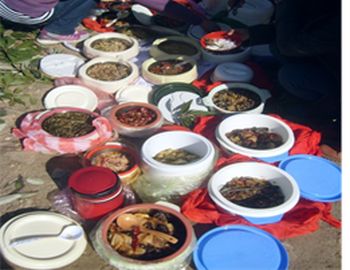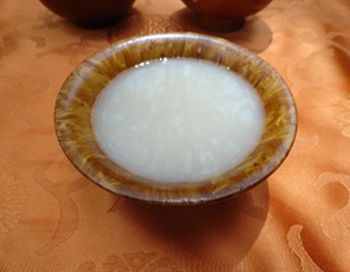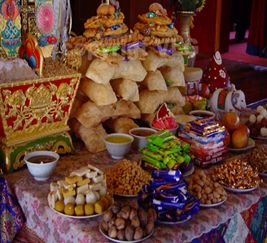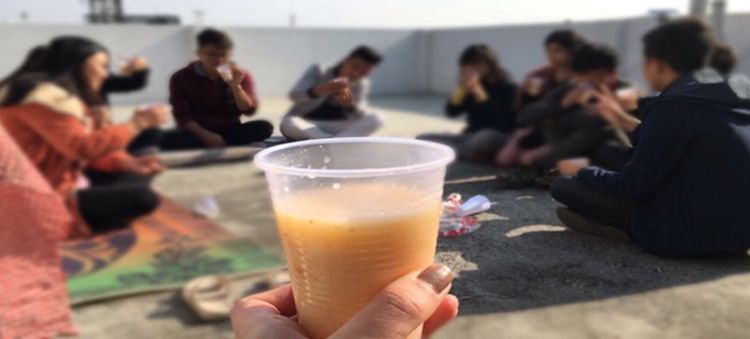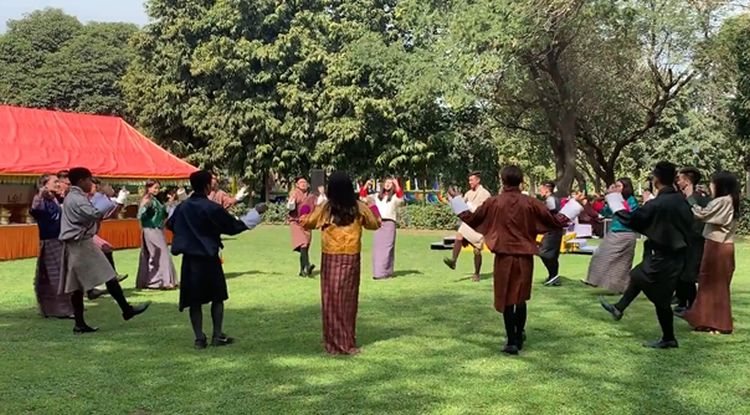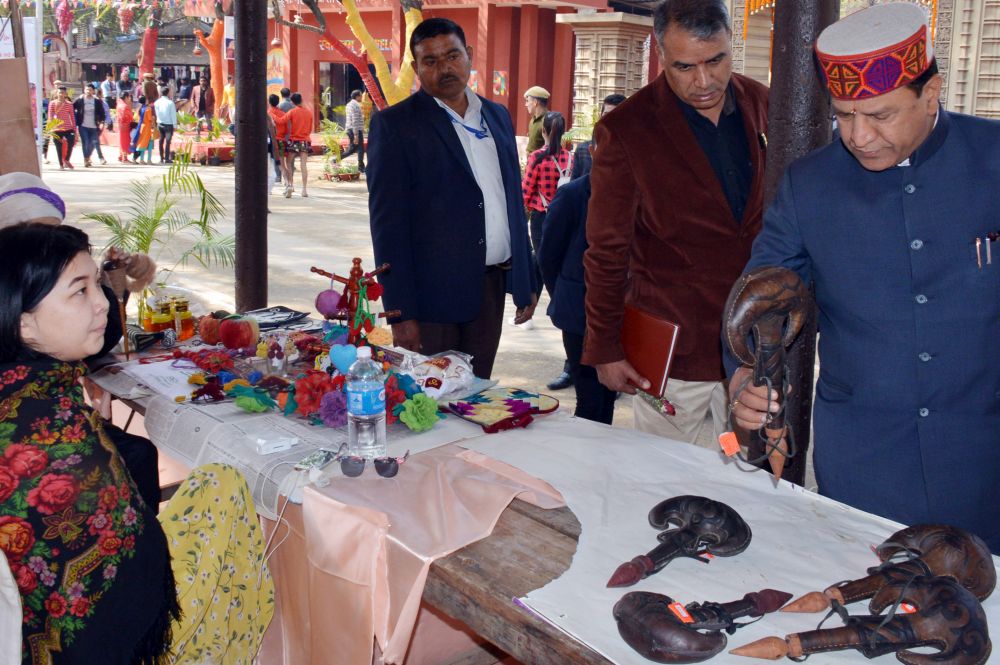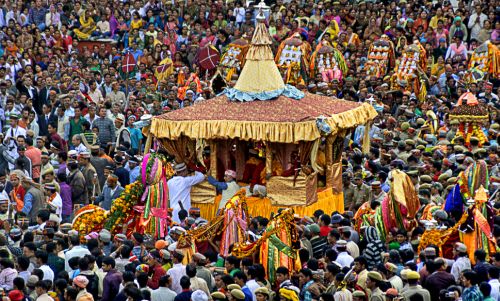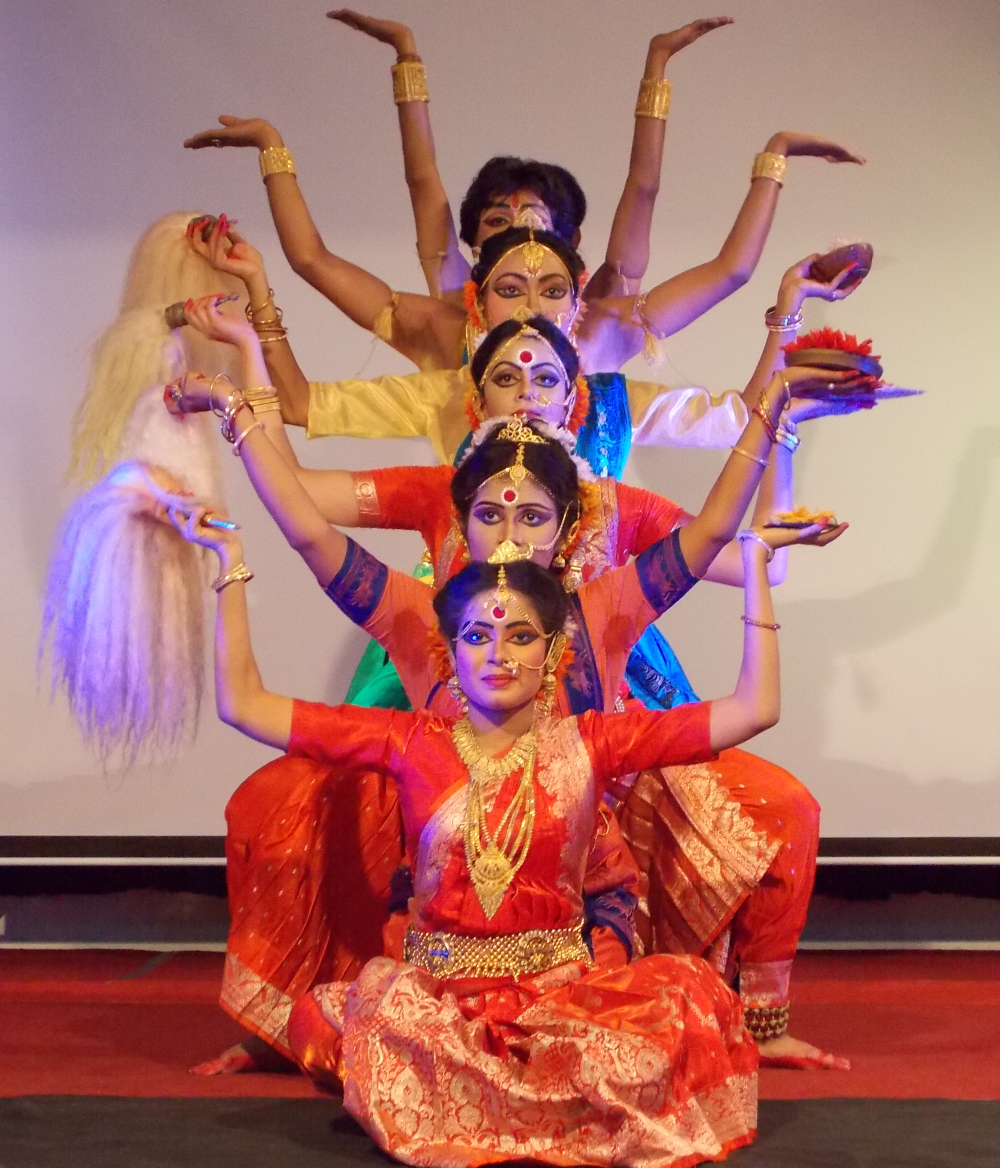(Dristi Giri): One fine morning I was wished ‘Losar Tashi Delek’ by one of my new teachers. I was astounded, as to how an Indian could wish a Bhutanese the New Year greeting in the indigenous language! As a matter of respect and gratitude, I joyfully wished him ‘Losar Tashi Delek, Sir!’. This brought me to pen the importance of Losar for the readers.
‘Losar Tashi Delek’ is a Buddhist way of extending the new year greetings to our relatives and friends. I am a Bhutanese girl, who has come for a course in Tourism in one of the promising universities in the National Capital Territory of India. Following the Buddhist tradition, we Bhutanese people are very soft spoken and a bit reserved while welcoming new people. We don’t follow the conventional system of measuring success in terms of GDP and other hard to learn economic indices. We measure ourselves on the Gross Happiness Index and are proud of it!
The celebrations of new year are quite unique to various cultures, and so is ours. New Year’s is the people’s way of inviting good fortune throughout the year. The world follows the Gregorian calendar marking it on the 1st day of January and our nearest neighbor India celebrates it depending on solar or lunar calendars. The solar calendar celebrates during the harvest time of spring in the mid-April between 13 to 15 calling it as Baisakhi in north and central India, while Bihu in Assam, Putthandu in Tamil Nadu, Vishu in Kerala, Bishuva Sankranti in Odisha and Poila Boishakh in Bengal are the other names of the same festival of harvest.
The Lunar calendar on the other hand, is followed in some other parts of the country and the festivals to mark the new year is celebrated as Ugadi in Maharashtra, Andhra Pradesh, Karnataka and Telangana. Gudi Padwa is also celebrated in Maharashtra, Goa and parts of the Konkan belt, while Navreh in Kashmir and Cheti Chand marks the occasion for the Sindhi community.
Everyone celebrates it with a lot of pomp and show by cleaning their houses, bursting of crackers, making offering of the first crop to the local deity or the gods and goddesses and wearing new clothes.
We, the residents of Bhutan, Tibet, Nepal and parts of India holds high regards for this festival, celebrated for a good 14 days, starting from 24th February. Losar, is a portmanteau of two words Lo meaning Year and Sar being New. I remember my History teacher telling us the origin of Losar. It dates back way before Buddhism was introduced. Losar was celebrated to mark the end of winter by the Bon religion in the Tibet and later when Buddhism grew to other parts of the world, the holy monks linked the date to be the first day of the New Year.
Losar being an important festival, brings all the family members together and we make the offerings to our local deity for the well-being of the people throughout the year and celebrate the fresh harvest.
With great zest and zeal, we prepare a variety of dishes, sing, and dance on traditional songs. Archery, our national sport and Khuru (darts) are the attraction where adults take pleasure in. The women chat in groups and cheer their respective teams, while kids linger in the sun with their little games.
Preparing the food is a daylong affair, with making Khabzeys (special fried biscuits in fascinating shapes and colors, that I’ve been relishing for over two decades) a day or two prior to the celebrations. Breakfast usually starts with delicious Thup (rice porridge) served with some Azay (chili pickle) and nourishing warm Suja (butter tea) with Khabzeys.
My Apa (father) says that Thup should be eaten right after the sunrise, so everyone makes sure to be ready for breakfast latest by 7 am. This is usually hard for me, but I manage, for the love of Thup and for my Apa’s words.
With all the members sitting on the floor in a circle, laughing and talking is a personal affair. Some fun is added by hiding small treats between the flour balls in porridge for fun. The treat one gets are said to symbolize their characters, like putting coal symbolizes rude and toxic person, while rice balls for soft hearted person and a stick for strong person.
Luncheons, we gather with family members and good friends, dressed up in our best attires (colorful Ghos for boys and Kiras for girls) for the day’s activity outdoors. Packing up the mouthwatering dishes for lunch and picking their archeries or darts we make our ways to big fields or grounds where we can enjoy for the rest of the day.
Ama (mother) along with a few others makes her exceptionally delicious dishes which includes red rice, meat items like beef Maru (curry), chicken, pork, Ema Datshi (chili usually dried ones made with a lot of cheese), Kewa Datshi (potato made with cheese), Momo, noodles and many more. Juice is served to the youngsters and adults consume Ara (traditional alcohol made from grains, usually the rice and maize) which spices up the celebration.
Have you ever heard about Bhutanese dance? Well let me tell you, we enjoy slow dance, usually forming a circle so that everyone is visible, and no one is left out. The traditional songs are usually slow and soothing to dance too, with light footed movement. The kids enjoy modern fast-paced songs and igniting jumps while singing aloud as we move in circles. I, being in India, miss my part of dance along with Apa, Ama and the rest of the kith and kin.
My day long celebrations come to a good end with grandma’s stories about her childhood. Back in those days, with what she can recall, they used to go around the village visiting each house in the neighborhood, singing and dancing and the house owners offered them snacks and goodies. She also points that with the nuclear family setup and techno-savvy whiz kids these were the memories of the golden times which our generation has failed to live.
As a Bhutanese, it gives me immense pleasure to be sharing what Losar means to us and how beautiful it is to be a part of this rich legacy. With this I wish everyone a very happy new year and hope you remember this as we do.
Tashi Delek to all!
Note: Article is written by Dristi Giri, student of BA (TA) 2018-21 Batch Amity Institute of Travel and Tourism, Amity University Noida, under the supervision of Priya Sharma, Senior Lecturer, Institute of Hotel Management Kufri, Shimla and Dr. Parikshit Sharma, Assistant Professor III Amity Institute of Travel and Tourism, Amity University Noida.


